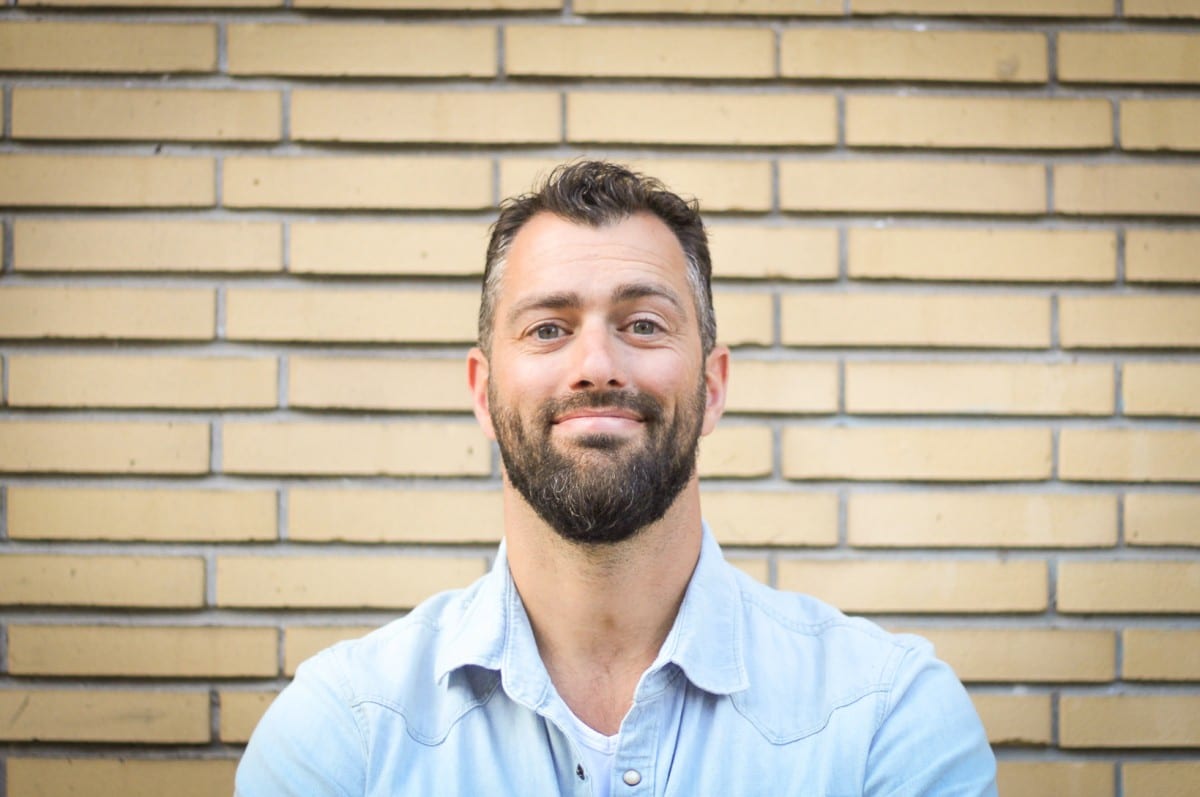[vc_row type=”in_container” full_screen_row_position=”middle” scene_position=”center” text_color=”dark” text_align=”left” top_padding=”30″ overlay_strength=”0.3″ shape_divider_position=”bottom” bg_image_animation=”none” shape_type=”mountains”]
Robert works as a Lead Data Scientist at Data Science Lab.
He also keeps himself mostly busy with his two daughters (6 and 3) and things like Brazilian jiujitsu, literature, philosophy, nature, history and chores.
Where did you work before starting at Data Science Lab?
Long time (10 years) at ING: first as database marketing analyst/consultant, later as data scientist.
Before that I worked in BI, software development and E-learning (educational adventure with my own company).
I studied Artificial Intelligence, so it is nice that, after many years, I returned to it in my work.
This has the depth and versatility that I missed in other jobs.
What are the duties as a “Lead data scientist” at Data Science Lab and what do you find most interesting about it?
Most of my time is spent on client projects: largely my regular “own” assignment and also occasionally workshops, brainstorms, thinking along with other assignments.
Of course, I also work on the further development of Data Science Lab and my colleagues.
As lead, I am the ‘technical conscience’ of DSL and responsible for the content and development.
This includes templates for Python projects and cloud deployment, coaching, blogging, code reviews, organizing tech days and harassing colleagues with links to interesting blogs. Oh yes: and lots of job interviews!
The most interesting, but also most challenging part of this is how to help a diverse group of young and sometimes headstrong people move forward with your own knowledge and experience, in a way that matches their own frame of reference and affinities.
How do you perform the work in the current situation?
A lot with Teams… In the beginning emphasize a lot that everyone should be on mute when they are not speaking and put in earbuds themselves to avoid echoes.
Screen sharing is also helpful.
The technical work is otherwise fine to do remotely.
At home it is sometimes a challenge to combine work and children, but by now that runs more smoothly than the first week.
Of course there is a way around everything, but in the long run physical isolation is not really sustainable.
Within your current project, what is the biggest technical challenge?
Develop a model that simulates a sewage treatment plant, based on partially missing and sometimes severely contaminated data, and then train a deep reinforcement learning agent on it to optimize its control.
Here we experiment with state-of-the-art techniques.
This is very interesting, but also difficult to get to a working whole.
What do you think is the biggest misconception of data science?
Put some data scientists in a cubicle without changing anything about the organization and processes and then hope for miracles.
And yes, of course, there are good examples of stand-alone data science solutions that have been successfully deployed without any disruption, but as a rule, an organization will have to evolve o.k.a. digital processes and data-driven work to get from basement experiment to structural impact.
Oh, and the misconception that you should get advice from Gartner… I also used to hear things like, “We need more unstructured data because then we can do big data,” or “We need a Hadoop cluster so we can train neural networks.”
How do you see data science in 10 years?
Setting aside for a moment the dystopian developments around the use of AI for mass monitoring and totalitarian control by governments and corporations, I think the data scientist unicorn as we see it today will slowly disappear.
Not so much because of smart tools, but because competencies in machine learning, business consultancy, engineering etc. will be less contained in the same role.
So a little more specialization, but also more blending of data science capabilities within a specific domain.
But even more concretely:
- the “pure” data science will become somewhat more commodity with out-of-the-box working solutions, while engineering and consulting will become more important
- in the coming years, the manufacturing, utility & agriculture sectors in particular will make great strides
What problem would you ever want to solve through data science?
I don’t so much believe in an AI application that is going to save the world.
The worrying scale of AI applications from tech giants and governments, and the resulting centralization of power, do not set a good example as far as I am concerned.
Ultimately, I would rather see data science used as a tool of humans rather than as a replacement for humans.
The human touch must return.
So I’d rather help SMEs, big business and utilities do ordinary things better.
That’s a more salutary path than creating a Frankenstein’s monster with blind idealism.
But what still seems very cool to me is to make history visual by taking information from old books and writings and bringing it to life with images.
Something like that, or just making sure the trains run on time.
[vc_row type=”in_container” full_screen_row_position=”middle” scene_position=”center” text_color=”dark” text_align=”left” top_padding=”90″ overlay_strength=”0.3″ shape_divider_position=”bottom” bg_image_animation=”none” shape_type=””]



